We’ve published our Globe 100 book list for 2021 — take a look here!
Expand your mind and build your reading list with the Books newsletter. Sign up today.

Illustration by SALINI PERERA
Fiction
Ridgerunner by Gil Adamson 
Homeland Elegies by Ayad Akhtar
Leave the World Behind by Rumaan Alam
The Vanishing Half by Brit Bennett
Here the Dark by David Bergen 
Noopiming: The Cure for White Ladies by Leanne Betasamosake Simpson 
Blaze Island by Catherine Bush 
Piranesi by Susanna Clarke
The Pull of the Stars by Emma Donoghue 
Butter Honey Pig Bread by Francesca Ekwuyasi 
The Lying Life of Adults by Elena Ferrante
The Beguiling by Zsuzsi Gartner 
Agency by William Gibson 
Five Little Indians by Michelle Good 
The Only Good Indians by Stephen Graham Jones
Dominoes at the Crossroads by Kaie Kellough 
If It Bleeds by Stephen King
Indians on Vacation by Thomas King 
Consent by Annabel Lyon 
When We Were Vikings by Andrew David MacDonald 
The Glass Hotel by Emily St. John Mandel 
The Mirror and The Light by Hilary Mantel
Shadow King by Maaza Mengiste
Polar Vortex by Shani Mootoo 
Songs for the End of the World by Saleema Nawaz 
Weather by Jenny Offill
Good Citizens Need Not Fear by Maria Reva 
How to Pronounce Knife by Souvankham Thammavongsa
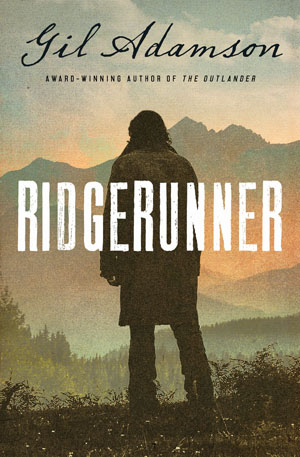
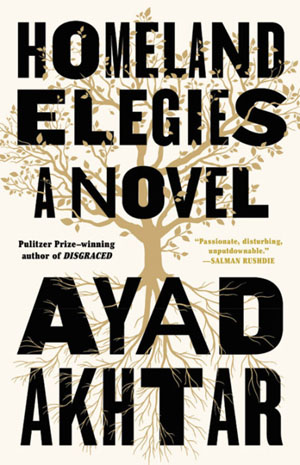
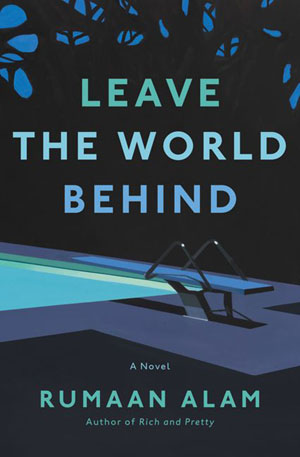
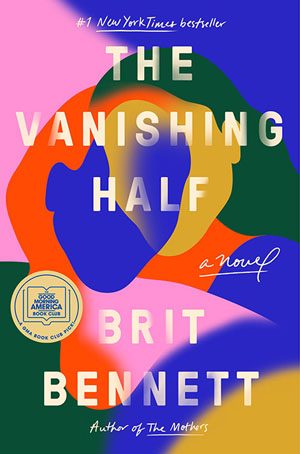
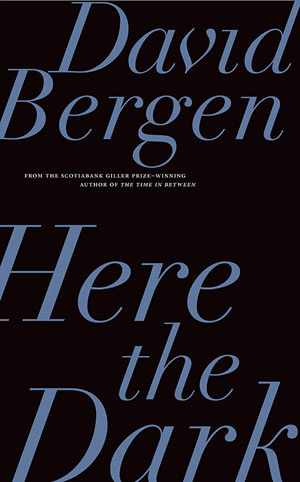
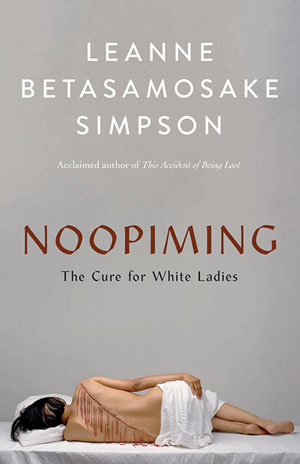
Ridgerunner
Gil Adamson (House of Anansi Press)
The sequel to The Outlander (2007), this gothic Western was short-listed for this year’s Giller and won the Writers’ Trust Fiction Prize. The novel begins in 1917 with the death of Mary, the first novel’s main character, and focuses on the father of her child, Moreland. He sets out to steal enough cash to give his son a comfortable life. But their boy, who has his parents’ stubbornness and itch for self-sufficiency, doesn’t stay put for long.
Homeland Elegies
Ayad Akhtar (Little, Brown And Company)
This novel by the Pulitzer-winning author of Disgraced provocatively blends fact and fiction, paradox and contradiction, appearing to be a memoir of a man with the same name and pedigree as its author – a Pulitzer-winning American playwright of Pakistani-Muslim extraction whose father, a doctor, became enamoured with Donald Trump after treating him for a heart ailment, and then disillusioned after he assumes the presidency.
Leave The World Behind
Rumaan Alam (HarperCollins)
The author of Rich and Pretty and That Kind of Mother is back with a look at what happens when a pair of white renters, Clay and Amanda, are startled by the unexpected arrival of the Black property owners, who claim they’re escaping a mysterious blackout in New York. A finalist for the National Book Award, it looks at parenthood, race and class, and what happens to families during a crisis.
The Vanishing Half
Brit Bennett (Penguin Publishing Group)
In this provocative and illuminating novel, Bennett tackles the idea of “passing.” Twins Stella and Desiree are born in a community established for Black residents with light skin. Eventually they move to New Orleans, where one marries a Black man and the other a white man. The book toggles back and forth between their daughters in 1980 and the twins’ adolescence in Louisiana.
Here The Dark
David Bergen (Biblioasis)
Another Giller short-lister, this collection of stories deals with themes of grace and redemption, and takes readers from the streets of Danang, Vietnam, to the islands of Honduras, to the Canadian Prairies.
Noopiming: The Cure for White Ladies
Leanne Betasamosake Simpson (House of Anansi Press)
This brilliant novel is a carefully curated mix of prose and poetry structured into 10 parts. The layered storytelling introduces readers to an incredible cast of characters, giving us the perspective of Elders, Indigenous youth, raccoons, geese and trees, braiding together past, present and future. Noopiming is Anishinaabemowin for “in the bush,” and the title is a response to Susanna Moodie’s 1852 memoir Roughing It in the Bush.
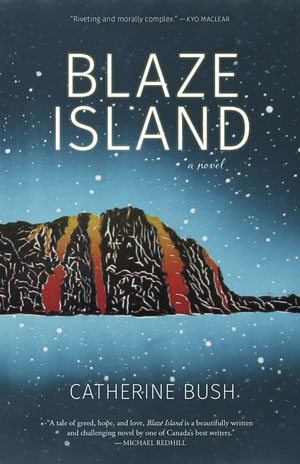
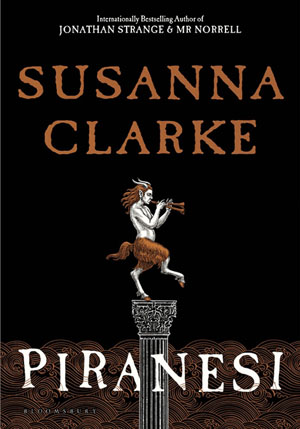
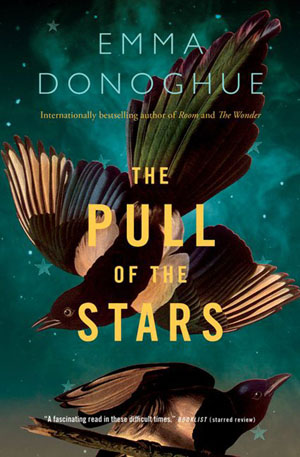



Blaze Island
Catherine Bush (Goose Lane Editions)
In an alternate near-now, a mammoth hurricane sweeps up the eastern seaboard and dredges up memories of the past. In the aftermath, a woman finds herself in an altered world. This climate-themed, Shakespeare-inspired novel is the latest from the author of Accusation and Claire’s Head.
Piranesi
Susanna Clarke (Bloomsbury)
It’s been more than 15 years since the British author delighted readers with her debut novel, Jonathan Strange and Mr. Norrell, and her new work is equally fantastical and thought-provoking. It follows Piranesi, who has spent years wandering through interconnected rooms in a house, with only birds and statues for company. He occasionally meets with The Other, who is on a quest for knowledge that may be in the house.
The Pull of the Stars
Emma Donoghue (HarperCollins)
The author of Room and Akin takes on the 1918 influenza epidemic as the Great War still rages in Europe. The novel, set in a single room of a Dublin hospital, features the real-life character of Dr. Kathleen Lynn.
Butter Honey Pig Bread
Francesca Ekwuyasi (Arsenal Pulp Press)
In this remarkably assured debut, three women search to reconnect after an event tore them apart. It’s sexy, too, and it’ll make you hungry with all its talk of food.
The Lying Life of Adults
Elena Ferrante (Europa Editions)
This is Ferrante’s first novel in five years, and it’s once again translated by New York–based translator Ann Goldstein. The tale begins in the 1990s, when 12-year-old Giovanna Trada goes to see her beautiful black-sheep aunt, Vittoria, who asks Giovanna to open her eyes to the truths in her world.
The Beguiling
Zsuzsi Gartner (Hamish Hamilton)
This debut novel, short-listed for the Writers Trust Prize for Fiction, revolves around Lucy, who, after the bizarre death of her cousin, Zoltán, begins to attract confessions from people – sometimes strangers, sometimes acquaintances. The writing is exquisite and contains one whopper of a sentence: 468 words over 45 lines.

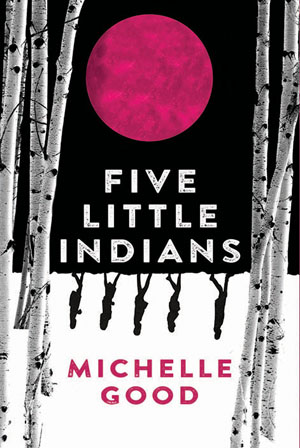
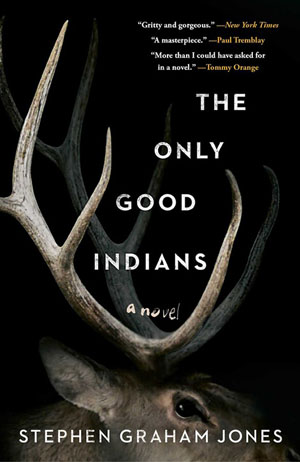
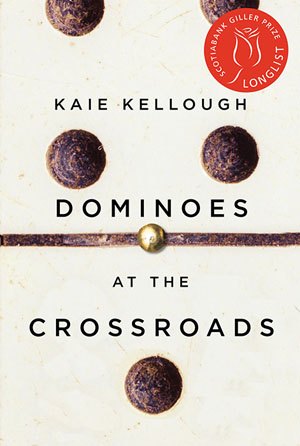

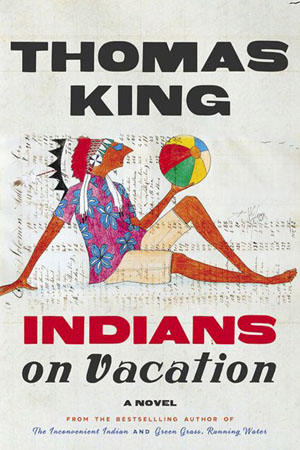
Agency
William Gibson (Berkley)
Gibson’s latest is a sequel of sorts to 2014′s The Peripheral, which depicts a far-future where “continua enthusiasts” can remotely interact with past, alternate realities, called “stubs.” In Agency, London police detective inspector Ainsley Lowbeer discovers that someone has made contact with a stub where Brexit didn’t happen and Donald Trump didn’t win – though things aren’t particularly better for it.
Five Little Indians
Michelle Good (Harper Perennial)
In her debut novel, short-listed for the Writers’ Trust Prize for Fiction, Good – a member of Saskatchewan’s Red Pheasant Cree Nation – chronicles the desperate quest of five residential-school survivors to overcome, or to forget, the trauma of their past.
The Only Good Indians
Stephen Graham Jones (Simon & Schuster)
A blend of horror and social commentary, four American Indian men go hunting one night on land reserved for tribal elders. They kill several elk, but have to throw away the meat to evade the law. Now, a decade later, something is after them. This is a novel about identity and tradition, all wrapped up in a thrilling narrative.
Dominoes at the Crossroads
Kaie Kellough (Esplanade Books)
This innovative story collection about the history (and future) of Black people in Canada is also a love letter between Montreal and the Caribbean.
If It Bleeds
Stephen King (Simon & Schuster)
The master of the novella brings together four new stories that plumb classic King themes including the depravity of ordinary life and the potential horrors of technology. The title story is a spin on the old newsroom adage: If it bleeds, it leads.
Indians on Vacation
Thomas King (HarperCollins)
King’s most recent book (long-listed for the Giller and short-listed for the Writers’ Trust for Fiction) follows Cherokee-Greek writer-photographer expat Bird Mavrias and his wife, Mimi, as they set off in their golden years to track Mimi’s great-uncle, who disappeared into Europe 100 years ago with a precious medicine bundle belonging to the family.
/cloudfront-us-east-1.images.arcpublishing.com/tgam/YH4VNLDL7RHM5FTNYBVRASF2WY.jpg)

/cloudfront-us-east-1.images.arcpublishing.com/tgam/WEUVZSO5HRAURG7YVKBS67BIFM.jpg)

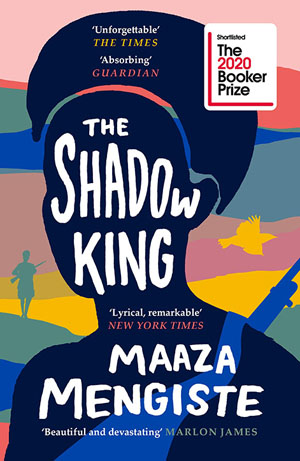
/cloudfront-us-east-1.images.arcpublishing.com/tgam/ELJMQNLU5FFU5EBL4IDAE4Z3DQ.jpg)
Consent
Annabel Lyon (Random House Canada)
Saskia and Jenny are twins—Saskia is a hard-working grad student while Jenny, an interior designer, is glamourous and thrill-seeking. Still, when Jenny is severely injured in an accident, Saskia puts her life on hold to be with her sister.
When We Were Vikings
Andrew David MacDonald (Simon & Schuster)
This is an astute book, full of heart, whose differently abled heroine, 21-year-old Zelda, burrows into your imagination. You can’t help but cheer her on, crossing your fingers and toes that she’ll get everything she ever dreamed of and more.
The Glass Hotel
Emily St. John Mandel (HarperCollins)
Set in the decades on either side of the mid-aughts, this Giller-short-listed novel strongly resembles Mandel’s previous work, Station Eleven, in mood and approach, flitting among a group of interlinked but geographically – and at times chronologically – disparate characters. But instead of a global pandemic, this one revolves around a Ponzi scheme, tackling themes of guilt, complacency, loss and theft.
The Mirror and the Light
Hilary Mantel (HarperCollins Canada)
This superb, long-awaited conclusion to Mantel’s trilogy about Thomas Cromwell and the court of Henry VIII was long-listed for the Booker Prize. Although we know the end is coming – Cromwell did, after all, die a few hundred years ago – Mantel offers depth and texture, nuance and immersion, as we wend through the final years of the doomed statesman’s life.
Shadow King
Maaza Mengiste (Canongate Books)
Nominated for the Booker Prize, the Fulbright scholar’s novel takes place in 1935, during the Second Italo-Ethiopian War. It tells the story of Hirut, a young woman who works as a household servant until she persuades another woman to assume the role of the missing Emperor Haile Selassie, and becomes a guard and warrior. It’s a lyrical novel that explores what it means to be a woman in wartime.
Polar Vortex
Shani Mootoo (Book*hug Press)
This GIller-short-listed work is a departure from Mootoo’s previous books, which took place at least partly in Trinidad, where the author grew up. Though this one is set entirely in Canada, it’s a continuation of her earlier work – from her debut short-story collection to her novels and even her poetry – which has all been about family in one form or another. Her unsettling latest examines how secrets always come back to haunt us – especially the ones we’ve managed to keep from ourselves.
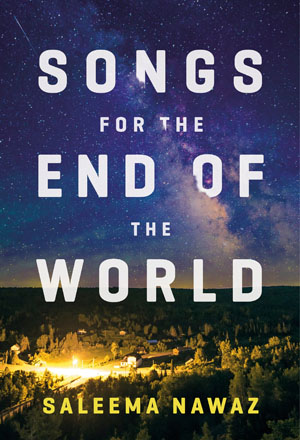
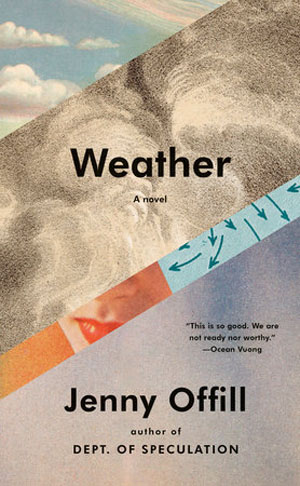


Songs for the End of the World
Saleema Nawaz (McClelland & Stewart)
A highly infectious novel coronavirus – one that begins as a weird flu in a province in China – is devastating New York, making thousands ill, forcing quarantines, shutting down businesses and eventually spreading across North America. This eerily prescient novel – which also takes place in 2020 – is oddly comforting since it explores the power of connection – something we’ve all been longing for this year.
Weather
Jenny Offill (Knopf)
The weather in the title of Offill’s third novel can be read as a metaphor for the physical and emotional noise of daily life. Its first-person narrator, Lizzie (a failed academic, reminiscent of the heroine in Offill’s blockbuster last novel, Dept. of Speculation), works at the help desk of her university’s library, dealing with anemic adjuncts and anxious students. But beneath the quotidian surface, Lizzie and almost everyone around her are in a near-constant state of anxiety about the planet’s fate.
Good Citizens Need Not Fear
Maria Reva (Knopf Canada)
Ukrainian-born, Vancouver-raised Reva’s tender, absurdist novel-in-stories was inspired by her own family’s experiences in Ukraine and takes place in a Soviet-era apartment building, which has been expunged from official records owing to a bureaucratic glitch. Witheringly incisive and consistently pitch-perfect, Good Citizens Need Not Fear is nothing short of a comic triumph.
How to Pronounce Knife
Souvankham Thammavongsa (McClelland & Stewart)
This debut short-story collection won this year’s Giller. The stories (some of which have appeared in Harper’s, Granta, The Atlantic and The Paris Review) illuminate the day-to-day lives of immigrants, from an unlikely Randy Travis fan to an equally unlikely nail-salon superstar.
Non-fiction
This is Not the End of Me by Dakshana Bascaramurty 
A History of My Brief Body by Billy-Ray Belcourt 
Burke’s Law: A Life in Hockey by Brian Burke
The Skin We’re In by Desmond Cole 
Through The Garden by Lorna Crozier 
Magdalena by Wade Davis 
A Bite of the Apple by Lennie Goodings 
Reaching Mithymnia by Steven Heighton 
The Splendid and the Vile by Erik Larson
Two Trees Make A Forest by Jessica J. Lee 
Missing from the Village by Justin Ling 
Agent Sonya by Ben MacIntyre
War: How Conflict Shaped Us by Margaret MacMillan 
Shame On Me by Tessa McWatt 
Restoring Democracy by Jonathan Manthorpe 
They Said This Would Be Fun by Eternity Martis 
A Promised Land by Barack Obama
Unicorn in the Woods by Gordon Pitts 
Leonard Cohen, Untold Stories: The Early Years by Michael Posner 
Ice Walker by James Raffan 
Black Water by David A. Robertson 
The Expendables: How the Middle Class Got Screwed by Globalization by Jeff Rubin 
Owls of the Eastern Ice by Jonathan C. Slaght
The Book of Eels by Patrik Svensson
The Imperilled Ocean by Laura Trethewey 
Rage by Bob Woodward
Field Notes from an Unintentional Birder by Julia Zarankin 
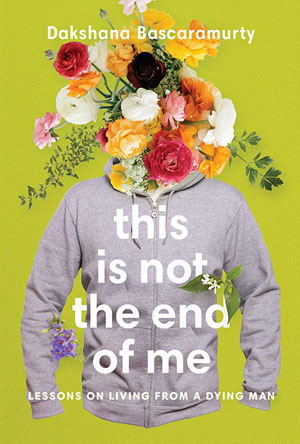
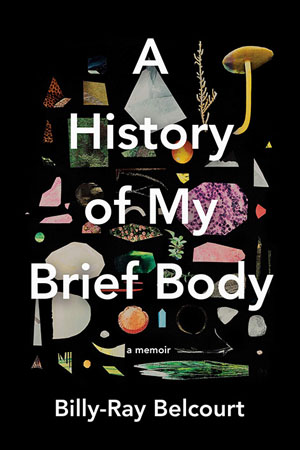
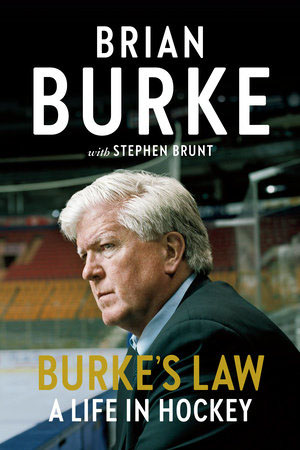



This is Not the End of Me
Dakshana Bascaramurty (McClelland & Stewart)
Layton Reid is a globe-trotting, sun-addicted bachelor – until he’s diagnosed with melanoma at age 30. While in remission, he gets married and starts a family, only for the cancer to return in Stage IV. Bascaramurty recounts Layton’s three-year journey as he tries desperately to stay alive for his young son, Finn, and then finds purpose in preparing Finn for a world without him. At its heart, the book is about the messiness of humanity, empathy, and the importance of conversation and connection.
A History of My Brief Body
Billy-Ray Belcourt (Hamish Hamilton)
This debut memoir by the Griffin Prize–winning poet starts with his early life in the hamlet of Joussard, Alta., and on the Driftpile First Nation. Each chapter is a meditation on being queer and Indigenous in Canada.
Burke’s Law: A Life in Hockey
Brian Burke (Viking)
Burke has been a divisive figure in Canadian hockey, but this memoir – packed with warmth and grudges (he names names) – might change some minds. It is also filled with little-known stories from his past, including the fact that, as Pat Quinn’s assistant, he nixed a trade that would’ve sent Wayne Gretzky from the Oilers to the Canucks. More than that, it’s a study in human frailty and learning lessons the hard way.
The Skin We’re In
Desmond Cole (Doubleday Canada)
In a 2015 Toronto Life story, Cole took on the Toronto Police Service and its controversial policy of carding. In his debut book, the activist set out to document one year of racism and resistance in Canada. He chose 2017, Canada’s sesquicentennial.
Through the Garden: A Love Story (with Cats)
Lorna Crozier (McClelland & Stewart)
Crozier and fellow Canadian writer Patrick Lane spent 40 years in a sometimes stormy but always passionate relationship. In this memoir, Crozier writes about navigating her husband’s mysterious illness, and tells the story of their decades together – the writing, the romance and the cats they raised – until his death in March, 2019.
Magdalena
Wade Davis (Knopf Canada)
The internationally lauded author of 20 books (including Into the Silence) shares his travels along Colombia’s Rio Magdalena (the river that is the heart of the country). Blending memoir, history and journalism with a healthy dose of adventure, Davis – the former explorer-in-residence at National Geographic – shares his love and knowledge of a country where he’s an honorary citizen.
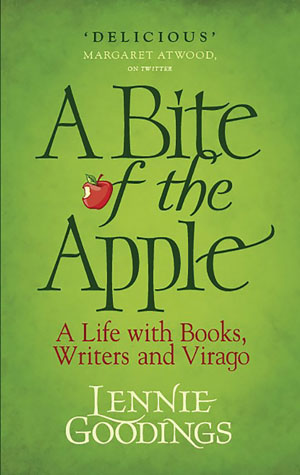

/cloudfront-us-east-1.images.arcpublishing.com/tgam/E3QU24EPSZB63M76UNTL3BQBUI.jpg)


/cloudfront-us-east-1.images.arcpublishing.com/tgam/QKYVMHN3KRFSBGJUDXSSC3HTN4.jpg)
A Bite of the Apple
Lennie Goodings (Biblioasis)
Goodings has been with feminist press Virago since the 1980s. This memoir confronts the realities of the publishing world and her work as an editor collaborating with authors including Maya Angelou, Margaret Atwood and Sarah Dunant.
Reaching Mithymna
Steven Heighton (Biblioasis)
Short-listed for the Hilary Weston Writers’ Trust Prize for Nonfiction, Heighton gives us a first-hand account of the Syrian refugee crisis when he decides to volunteer on the island of Lesvos. This is a heartbreaking but urgent tale of the crisis facing exhausted locals and weary aid workers.
The Splendid and the Vile
Erik Larson (Crown)
A riveting account of the crucial year – from May, 1940, to May, 1941 – when Britain withstood the Blitz and staved off invasion, thanks in no small part to Winston Churchill’s extraordinary leadership. Larson uses diaries and public documents to reveal how Churchill was able to stir the imagination of the British people and compel them to stay resolute even as the Nazis attacked mercilessly.
Two Trees Make A Forest
Jessica J. Lee (Penguin Canada)
After finding a cache of letters from her grandfather, Lee sets off to her ancestral homeland, Taiwan, where she hikes the forests, and learns about the flora and fauna that are key to discovering her past. The book won both the RBC Taylor Prize for Emerging Writers and this year’s Hilary Weston Writers’ Trust Prize for Nonfiction.
Missing From the Village
Justin Ling (McClelland & Stewart)
The investigative journalist traces what happened to the eight men who were murdered by serial killer Bruce McArthur. Ling chronicles the lives of the victims and the people they left behind, while also questioning the failures of the Toronto Police Service to adequately investigate the disappearances from Toronto’s gay village.
Agent Sonya
Ben MacIntyre (Signal)
MacIntyre is back with another juicy tale of Cold War intrigue. This time, the action swirls around real-life Red Army colonel Ursula Kuczynski, who had three children and took them with her on espionage missions in China, Poland, Switzerland and Britain. MacIntyre is a master storyteller and uses Kuczynski’s journals to build the story of the spymaster/housewife who eluded MI5.

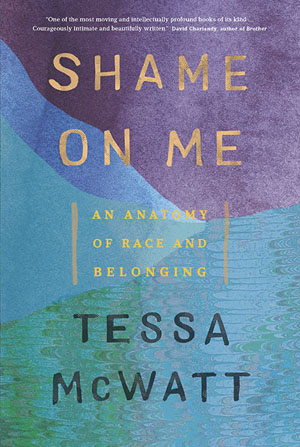

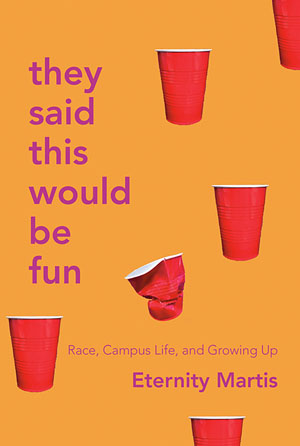
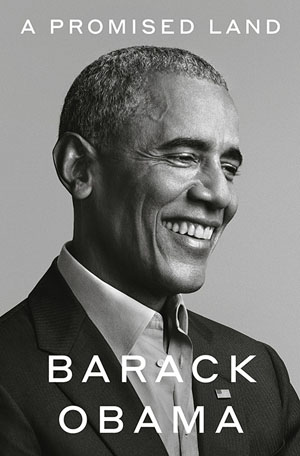
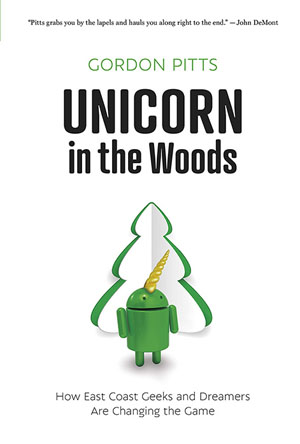
War: How Conflict Shaped Us
Margaret MacMillan (Allen Lane)
At 336 pages, MacMillan – a former professor at Ryerson, provost at the University of Toronto’s Trinity College and Warden of St. Anthony’s College at Oxford – provides a brisk but comprehensive look at military conflict and its implications on broader society.
Shame On Me
Tessa McWatt (Random House of Canada)
A personal and powerful exploration of history and identity from a writer whose ancestry is Scottish, English, French, Portuguese, Indian, Amerindian, African and Chinese. McWatt looks at the plantation as a political and racial structure, and how that has continued to affect generations today.
Restoring Democracy in an Age of Populists and Pestilence
Jonathan Manthorpe (Cormorant Books)
A thoughtful account of how we can save democracies from the despots and populists who provide easy answers to complicated situations, dumbing political discourse down to sandbox antics.
They Said This Would Be Fun
Eternity Martis (McClelland & Stewart)
Martis’s debut is part memoir, part guide to surviving in majority-white spaces – particularly hostile ones. Born to a largely absent Black father and a Pakistani mother, she attended Western University in London, Ont., and she connects her own experiences of gendered violence as a student there with the broader culture of impunity for perpetrators on university campuses.
A Promised Land
Barack Obama (Crown)
Poised to break publishing records this year, the first volume of the former president’s memoirs clocks in at 700 pages, giving readers a riveting look inside his head during his first term.
Unicorn in the Woods
Gordon Pitts (Goose Lane Editions)
The former Report on Business journalist looks at the origins of Radian6 and Q1 Labs, two startups founded in New Brunswick and sold for a combined $1 billion. It’s a Cinderella-like success story of an unlikely duo thriving in an unlikely part of Canada.
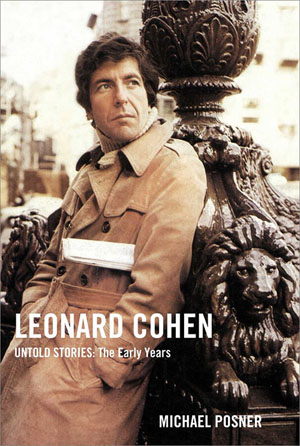


/cloudfront-us-east-1.images.arcpublishing.com/tgam/CLKQDMZQH5HZRMROW7WTCPCZJU.jpg)
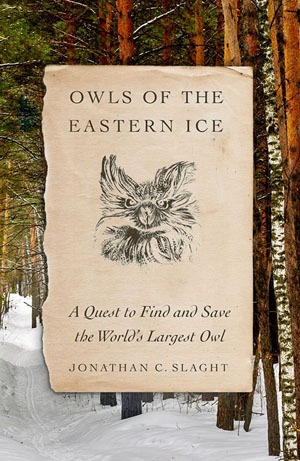
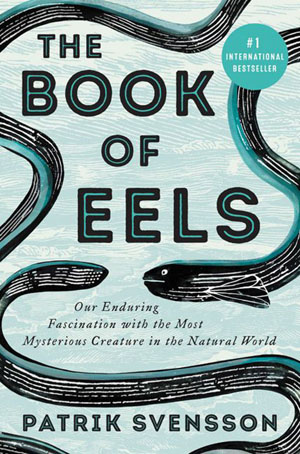
Leonard Cohen, Untold Stories: The Early Years
Michael Posner (Simon & Schuster)
In the first of three volumes, journalist, playwright and author Michael Posner follows Cohen from his boyhood in Montreal through university and the early years of his literary career and entree to the world of music, culminating with his first international tour in 1970. Posner has done exhaustive research and conducted more than 500 interviews that unearthed many untold stories.
Ice Walker
James Raffan (Simon & Schuster)
Raffan plunges readers into Hudson Bay and the world of Nanu, a female polar bear, spinning a stunning tale around this massive creature and the world she inhabits. The ice is as much a character in the story as the bears, and Raffan extols the wonders of this land, and what its loss will mean for Canadians and the world.
Black Water
David A. Robertson (HarperCollins)
A winner of the Governor-General’s Literary Award, Robertson is known for his entertaining books that teach young readers about Indigenous peoples in Canada. In this memoir, the Cree author, who was raised away from his culture, revisits his family’s past during a trip with his father to a northern trapline in Manitoba, hoping to reclaim their “blood memory” and find the meaning of home.
The Expendables
Jeff Rubin (Random House Canada)
A provocative, far-reaching account of how the middle class got stuck with the bill for globalization, and how the blowback – from Brexit to Trump to populist Europe – will change the developed world.
Owls of the Eastern Ice
Jonathan C. Slaght (Farrar, Straus And Giroux)
Wildlife biologist Slaght takes readers to the forests and mountains of the Primorye, one of the harshest environments in Russia. This brilliant tale, which was long-listed for a National Book Award, charts the four seasons he spent searching for the elusive Blakiston’s fish owl while doing fieldwork for his PhD.
The Book of Eels
Patrik Svensson (HarperCollins)
If you’ve ever wondered about these mysterious fish (yes, they’re fish, with scales and gills), then this mix of natural history and memoir from the Swedish journalist should answer all your questions. The book – which won Sweden’s prestigious August Prize earlier this year – also delves into the relationship between Svensson and his father, who died of cancer.
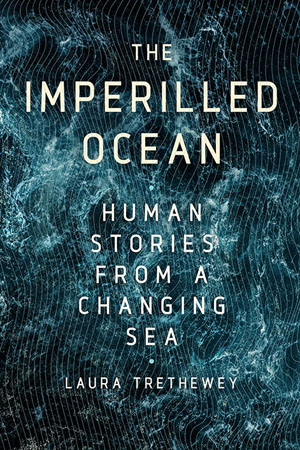
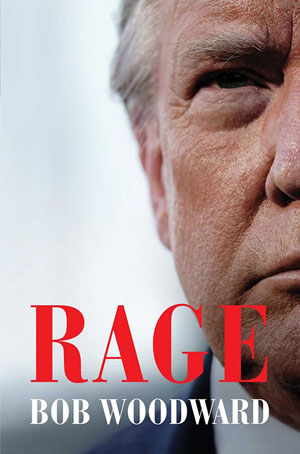

The Imperilled Ocean
Laura Trethewey (Goose Lane Editions)
The Toronto-born, San Diego-based Trethewey describes herself as an ocean journalist, and her first book on the subject puts into perspective not only the ocean itself as a giant ecosystem, but also how humans draw inspiration from and enjoy the seas – and how we fear, use and abuse them.
Rage
Bob Woodward (Simon & Schuster)
The American journalist and associate editor at The Washington Post has once again delivered an explosive political tale – this time based on 18 meetings with U.S. President Donald Trump. In one of those meetings, Trump admitted he played down the severity of the novel coronavirus because he didn’t want to start a panic. The news came as a bombshell during this year’s presidential campaign.
Field Notes from an Unintentional Birder
Julia Zarankin (Douglas & McIntyre)
When her marriage ends and she changes careers, Zarankin decides to take up birdwatching. The result is a thoughtful and delightful memoir about how observing birds helped her understand herself and her new relationships.
Thrillers
Snow by John Banville
Blood in the Water by Silver Donald Cameron 
The Moroccan Girl by Charles Cumming
Squeeze Me by Carl Hiaasen
Metropolis by Philip Kerr
Obsidian by Thomas King 
The Aosawa Murders by Riku Onda, translation by Allison Watts
All the Devils Are Here by Louise Penny 
Dark August by Katie Tallo 
The Devil and the Dark Water by Stuart Turton


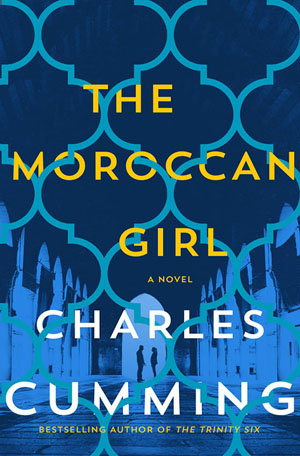
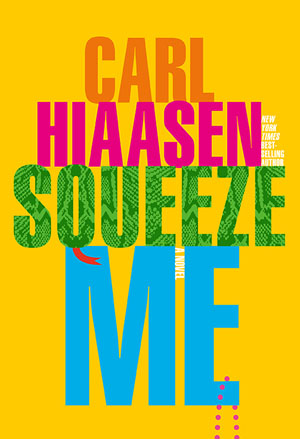

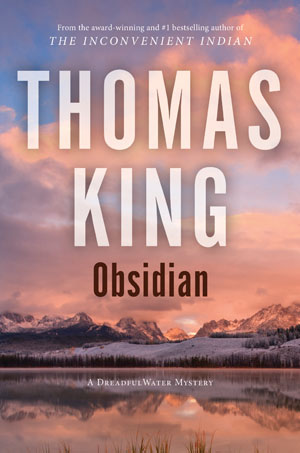
Snow
John Banville (Hanover Square Press)
The great Irish novelist has decided he no longer needs to hide behind a nom de plume (Benjamin Black) for his wonderful mystery novels. Snow is easily one of his best – and one of the very best mysteries of this or any other year. Quirke, the heavy-drinking pathologist who has starred in his previous mysteries, appears here only briefly. This book introduces a new detective, St. John Strafford, out to solve a wonderfully intricate country-house murder.
Blood in the Water
Silver Donald Cameron (Viking)
Cameron’s superb true-crime tale plunges readers into a case of murder for lobster in Cape Breton, near where Cameron lived until his death this past spring. His final book is one of his best.
The Moroccan Girl
Charles Cumming (St. Martin’s Press)
This stylish novel revisits the film Casablanca in a very modern espionage caper. MI6 approaches author Kit Carradine to help find and capture the female leader of a violent resistance group. His part will be simple and take place at a literary conference in Morocco. Naturally, nothing is as it seems, and the woman is on the run from more than one spy agency.
Squeeze Me
Carl Hiaasen (Knopf)
One of the best books by one of the funniest writers in crime fiction. Hiaasen has parodied Florida for its tans, plastic surgery, bass tournaments and The Big Rat. Now, he takes on politics with a blowhard president and his claque of sycophants in a marvellous Palm Beach setting. Fans of the series will be pleased that Skink, the former governor of Florida, is on the prowl.
Metropolis
Philip Kerr (Putnam)
The end of one of the finest crime series ever created goes back to the beginning. We find Bernie Gunther in 1928 Berlin, with the Weimar Republic in full decline. Kerr spares nothing here as he sets up the prequel to March Violets – the first Gunther book, published 30 years ago. The characters are brilliantly realized, the plot is superb, the setting mesmerizing. In short, Kerr, who died in 2018, left us with one of his best.
Obsidian
Thomas King (HarperCollins)
If you haven’t already discovered Thumps Dreadfulwater, this is the perfect book to start with. It takes the Cherokee ex-cop-turned-detective back into his own history, to the murder of his girlfriend and her daughter. A serial killer is out there, and Thumps knows he’s not going to stop. This is the fifth in a smart and funny series that takes readers into the heart of Indigenous life.




The Aosawa Murders
Riku Onda, translation by Alison Watts (Bitter Lemon Press)
An ingenious whodunit told in the Rashomon style, where each narrator has a bit of the answer, but no one has it all. At a grand birthday party for the heads of the wealthy Aosawa clan, almost every family member is poisoned – adults and children alike – leaving a blind adolescent as the lone witness. A suspect is caught, confesses and dies by suicide, but not even the police believe the case is closed. Thirty years later, a writer who knew the family attempts to solve the mystery.
All The Devils Are Here
Louise Penny (Minotaur)
The 16th instalment in the Three Pines series – which takes its title from Shakespeare’s The Tempest – moves Armand Gamache from his home turf in Quebec’s eastern townships to Paris (offering readers a break from the confines of the series’ titular village). When his billionaire godfather is brutally struck down, the Chief Inspector and his wife are thrust into a dark conspiracy in the City of Light.
Dark August
Katie Tallo (HarperCollins)
One of the best debut novels of the decade is set in gorgeous Southern Ontario. Augusta Monet drifts through life until she finds herself immersed in the crime that led to her mother’s death. Brilliant characters and a stellar plot make Tallo a talent who should be on everyone’s list.
The Devil and the Dark Water
Stuart Turton (HarperCollins)
One of the best historical mysteries in years follows a spice ship headed from the Dutch East Indies to Amsterdam. Among its cargo is prisoner Samuel Pipps, an ace investigator now accused of a crime. When passengers start dying, Pipps – bound in irons – can’t investigate, so his bodyguard and the governor-general’s wife try to crack it instead.
Graphic Novels
Vision by Julia Gfrörer
Constantly by GG 
Paying the Land by Joe Sacco
Wendy, Master of Art by Walter Scott
The Man Without Talent by Yoshiharu Tsuge, translated by Ryan Holmberg
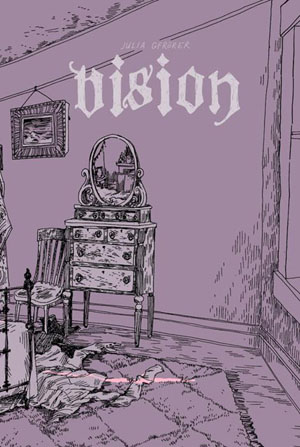


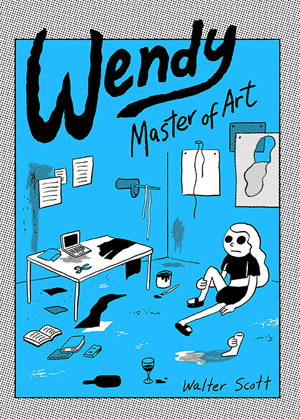
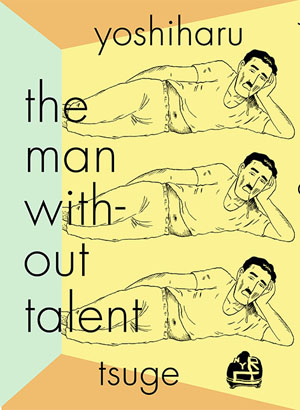
Vision
Julia Gfrörer (Fantagraphics)
In 19th-century New England, recently widowed Eleanor must nurse her malingering sister-in-law, while her own cataracts worsen – and a spirit makes illicit visits. With its unrelenting nine-panel grid and tightly hatched lines, Gfrörer’s gothic horror story is visceral and chilling.
Constantly
GG (Koyama Press)
Prairie cartoonist GG’s minimalist lines trace the subtle movements of a young woman confined to her home by oppressive anxiety. More graphic poem than graphic novel, this slim volume was haunting even before so many of us became housebound ourselves.
Paying the Land
Joe Sacco (Metropolitan Books)
Comics journalist Sacco (Footnotes in Gaza) turns his attention northward, embedding with the Dene in the Mackenzie River Valley. The people speak passionately about pipelines, land claims, residential schools and ancestral traditions, while Sacco dramatizes their words in breathtaking detail.
Wendy, Master of Art
Walter Scott (Drawn & Quarterly)
In her third book of art-world exploits, Wendy goes to grad school in podunk Ontario, where she cringes along with classmates wound just as tightly as herself. Scott’s satire is sharp and his slapstick refined: even the merest doodle is side-splitting.
The Man Without Talent
Yoshiharu Tsuge, translated by Ryan Holmberg (New York Review Comics)
A shiftless cartoonist gives up his craft to sell stones beside a river. Against a backdrop of unforgiving landscapes, Tsuge lays the economics of art – and the failings of the artist – chillingly bare. A long-awaited masterwork, finally translated.
Poetry
Dearly by Margaret Atwood 
Black Matters by Afua Cooper and Wilfried Raussert 
Home Body by Rupi Kaur 
Word Problems by Ian Williams 
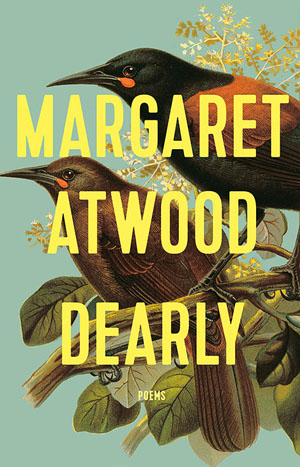


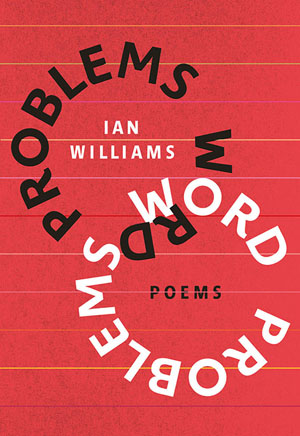
Dearly
Margaret Atwood (McClelland & Stewart)
In her first published collection in more than a decade, Atwood reminds us of the power of her poetry – incisive, fantastical, funny and alive with feeling. But it’s never sentimental and always controlled. She takes on climate change, carnal matters (involving slugs, among others), zombies and aliens.
Black Matters
Afua Cooper and Wilfried Raussert (Fernwood Publishing)
The poems and photographs in this collaboration between Cooper, Halifax’s former poet laureate, and photographer Raussert focus on everyday Black experiences.
Home Body
Rupi Kaur (Simon & Schuster)
The Brampton-raised internet sensation’s initial collection has sold more than eight million copies and introduced new readers to poetry. This latest work touches on love, loss, trauma, healing, femininity and migration.
Word Problems
Ian Williams (Coach House Books)
Poems run along the edges of pages, circle and cut across themselves in this collection about race and how being treated like a problem is more complicated than any math question.
Picture Books
Summer Feet by Sheree Fitch 
Nice Try, Charlie! by Matt James 
The Most Amazing Bird by Michael Arvaarluk Kusugak 
The Paper Boat: A Refugee Story by Thao Lam 
I Found Hope in a Cherry Tree by Jean E. Pendziwol 
The Old Woman by Joanne Schwartz 
I Talk Like a River by Jordan Scott 
The Lady with the Books by Kathy Stinson 
Our Little Kitchen by Jillian Tamaki 
The Wall and the Wind by Veselina Tomova 
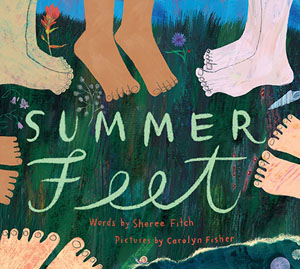
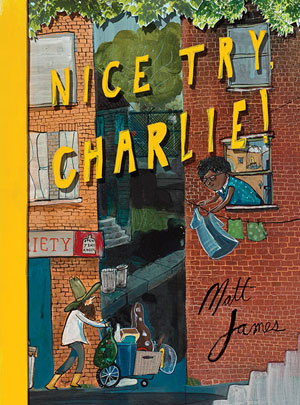

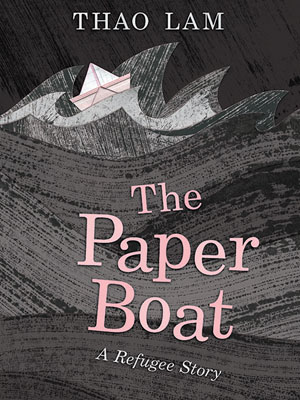
Summer Feet
Sheree Fitch, illustrations by Carolyn Fisher (Nimbus, 3-8)
This one dances off the page and will have readers wiggling their bare feet to Fitch’s delightful tongue-twisting rhymes. With the help of Fisher’s equally playful illustrations, readers can relive the joys of summer even on the coldest winter days.
Nice Try, Charlie!
Matt James (Groundwood, 4-8)
With a gentle touch and eye-popping mixed-media illustrations, James guides us through a vibrant inner-city neighbourhood with the effervescent Charlie, who roams his ‘hood gathering up treasures in a grocery cart – including a lemon meringue pie whose owner he hopes to find.
The Most Amazing Bird
Michael Arvaarluk Kusugak, illustrations Andrew Qappik (Annick, 4-7)
The Inuk storyteller weaves together the tale of a young girl’s encounter with a raucous tulugarguat (raven) with a delightful vision of the seasonal bird life in Nunavut. Qappik’s sensitive illustrations capture both the humour of the story and the Northern landscape.
The Paper Boat
Thao Lam (Owlkids, 6-9)
Lam wordlessly tells her own story of escaping Vietnam at the end of the war through collage illustrations that offer multiple perspectives into the world of her childhood – in particular a family story about how the ants that once plagued their dinner table helped guide the Lams to safety.


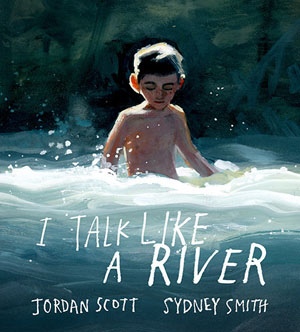

I Found Hope in a Cherry Tree
Jean E. Pendziwol, illustrations by Nathalie Dion (Groundwood, 4-8)
This lyrical book takes us into the dark places children go to when they’re unsettled and afraid, but then gently leads us back into the light with powerful metaphors of hope and resilience. Along with Pendziwol’s poetic text, Dion’s illustrations shimmer with hope.
The Old Woman
Joanne Schwartz, illustrations by Nahid Kazemi (Groundwood, 4-8)
Schwartz’s seemingly simple story – an old woman takes a walk in the woods with her dog – is about the need to stop and take in the world we live in, and allow ourselves to be transformed by these quiet moments. Kazemi’s exquisite chalk-and-pastel illustrations are the perfect medium for this gentle story.
I Talk Like a River
Jordan Scott, illustrations by Sydney Smith (Holiday House, 4-9)
Scott’s poetic work is beautifully balanced between the heartbreak of a young boy silenced by his stutter and his father taking him into nature, where he learns to “talk like a river.” Smith’s luminous illustrations capture the boy’s helplessness, but also the connection between child and river.
The Lady with the Books
Kathy Stinson, illustrations by Marie Lafrance (Kids Can Press, 4-7)
Stinson imaginatively connects the story of Jella Leppman, the German activist who used children’s books to build “bridges of understanding” after the Second World War, to a sister and brother whose world is transformed through an encounter with Leppman’s travelling exhibition. Lafrance’s illustrations bring to life a remarkable woman and her belief in the power of words.
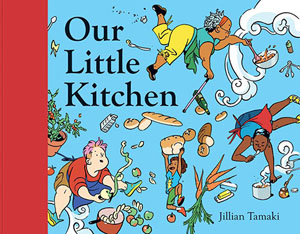

Our Little Kitchen
Jillian Tamaki (Groundwood, 4-8)
Working together is at the heart of Tamaki’s day in the life of a bustling community kitchen that feeds the homeless. The bubbly and poetic text is enhanced by graphic-novel-style illustrations. But what’s most striking is Tamaki’s gentle but empowering message about the need to be kind.
The Wall and the Wind
Veselina Tomova (Running the Goat, 6-8)
Tomova shares her experiences of growing up behind the Iron Curtain in the 1960s, brilliantly contrasting that experience with the freedom of the wind she imagines is at the heart of the life she’s remade for herself in Newfoundland. Mixed-media illustrations sweep readers into both of Tomova’s worlds.
/cloudfront-us-east-1.images.arcpublishing.com/tgam/XQC74J22JVGJ3L6L36Z4UF5YGU.jpg) Globe 100 Conversations
Globe 100 Conversations
Cherie Dimaline and Eden Robinson explore the intersection of science fiction, fantasy and Indigenous storytelling
Young Adult
Clap When You Land by Elizabeth Acevedo
Wildfire by Carrie Mac 
The Magic Fish by Trung Le Nguyen
You Were Never Here by Kathleen Peacock
Charming As A Verb by Ben Philippe
Okay, Universe by Valérie Plante and Delphie Côté-Lacroix 
Barry Squires, Full Tilt by Heather Smith 
The List of Things That Will Not Change by Rebecca Stead
All the Days Past, All the Days to Come by Mildred D. Taylor
We Are Not From Here by Jenny Torres Sanchez



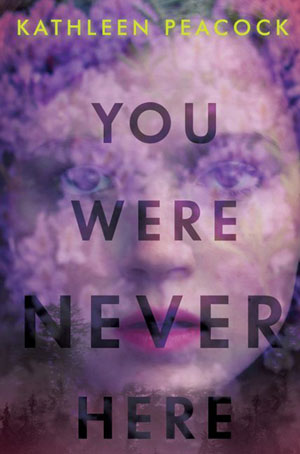
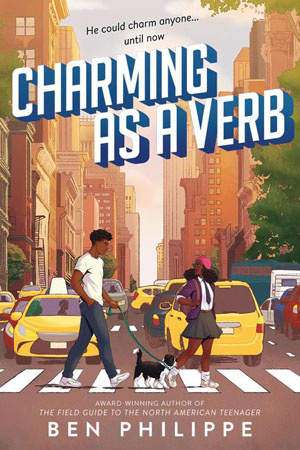
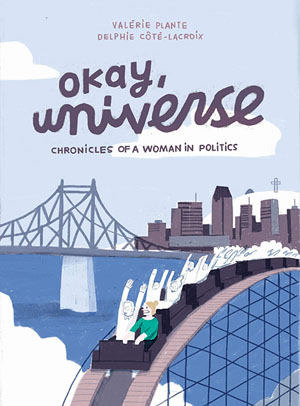
Clap When You Land
Elizabeth Acevedo (Harper Collins)
The winner of a North American slam-poetry competition, Acevedo has helped to popularize stories told in free verse for a young audience. This follow-up to her bestselling The Poet X focuses on two girls – one in the Dominican Republic the other in Manhattan – who learn they share a father after his plane crashes. The sisters seek to understand the duplicitous man they both loved and forge a new relationship.
Wildfire
Carrie Mac (Alfred A. Knopf Books for Young Readers)
Can childhood best friends Annie and Pete remain close as they mature sexually? United by the early loss of both their mothers, the misfits head to a camp for would-be firefighters in a Pacific Northwest beset by blazes. Annie is trying to get over another loss – the death of her fabulous grandmother – while Pete has started dating a girl Annie tries hard to like.
The Magic Fish
Trung Le Nguyen (Random House Graphic)
This special graphic novel weaves classic French and Vietnamese fairy tales with the story of Vietnamese-American Tién’s coming of age. His mother can feel Tién pulling away from her, but she’s preoccupied with getting an American passport to visit her dying mother back in Asia. Drawn in a classic anime style, the book finds a place where the lessons of art and life converge, helping mother and son see each other anew.
You Were Never Here
Kathleen Peacock (Harper Teen)
This smart, occult thriller is set in Peacock’s native New Brunswick, in a fading mill and college town Stephen King himself might have conjured up. It begins with the disappearance of a high-school hero and the arrival from Manhattan of an old friend – a girl descended from the town’s robber-baron founders. The characters are well drawn, the emotional stakes are high, and the prose is clean.
Charming as a Verb
Ben Philippe (Balzer + Bray)
The New York-based author grew up in Montreal’s Haitian-Canadian enclave, and the book’s hero moves through the bright lights of both big cities. In his final year of high school, a popular boy tries to stay cool as he attempts to get into the university his financially strapped parents have chosen for him; to use his dog-walking side-hustle to help pay their bills; to propel his debating team to a win; and to be a good boyfriend to his rich girlfriend.
Okay, Universe
Valérie Plante and Delphie Côté-Lacroix (Drawn & Quarterly)
Ideal for an aspiring young politico, this graphic memoir anatomizes the grit and idealism that helped Plante become Montreal’s first female mayor. Côté-Lacroix’s illustrations detail both Plante’s ground game in her first election and the moments she looks to the universe for guidance – hence the book’s title.
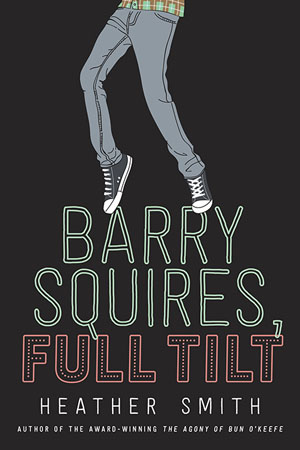
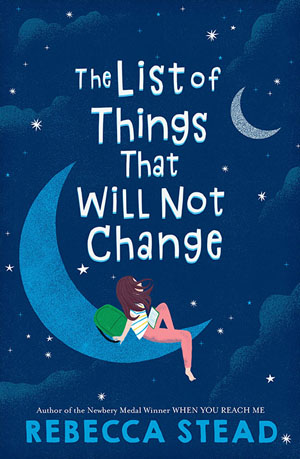


Barry Squires, Full Tilt
Heather Smith (Penguin Teen)
Set in the Newfoundland of the author’s youth, this funny, moving, note-perfect novel follows Barry Squires on his quest to become an Irish step dancer. After the birth of his younger brother, his mother has what he calls the Baby Blues, a severe case of postpartum depression. Barry tries to help – he really does – but he’s got problems of his own, brought on himself by his irreverent wit and ready fists.
The List of Things That Will Not Change
Rebecca Stead (Wendy Lamb Books)
A lovingly observed New York is the setting for Newbery Award–winner Stead’s latest book. Bea is a heroine akin to Harriet the Spy, as dear and troubled as the character who likely inspired her. Here, Bea (and her mother) try to adjust to her father’s remarriage – this time to a man.
All the Days Past, All the Days to Come
Mildred D. Taylor (Viking)
With Roll of Thunder, Hear My Cry in 1976, Taylor made the Black lives on her pages matter, giving this once lily-white genre a dash of colour. This is the epic tale of an African-American family making what became known as the Great Migration from segregated Mississippi to points north and west. You can feel the author’s determination to get it right – the holiday meals, the furnishings in cold-water flats, the way people spoke in her youth, all the warmth and all the sorrow.
We Are Not From Here
Jenny Torres Sanchez (Philomel)
Three teens embark on a harrowing journey from Guatemala to – they hope – the United States. One girl is fleeing after being raped by the local drug lord and giving birth to his baby. The other two have witnessed a murder. They each face different hardships along the way to three separate fates.
Cookbooks
In Bibi’s Kitchen by Hawa Hassan, with Julia Turshen
Home Style Cookery by Matty Matheson 
Baking Day With Anna Olson by Anna Olson 
Kiin: Recipes and Stories from Northern Thailand by Nuit Regular 
The Flavor Equation: The Science of Great Cooking by Nik Sharma
Falastin by Sami Tamimi and Tara Wigley



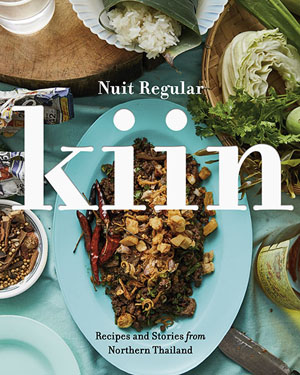
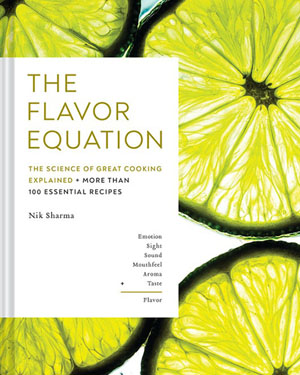

In Bibi’s Kitchen
Hawa Hassan, with Julia Turshen (Ten Speed Press)
An incredible compilation of recipes and stories gathered from bibis in South Africa, Mozambique, Madagascar, Comoros, Tanzania, Kenya, Somalia and Eritrea – countries that are the backbone of the spice trade. Somali chef Hassan and food writer Turshen draw you into each home kitchen to talk about ingredients, techniques and spice blends, along with the region’s people, language, economy and terroir.
Home Style Cookery
Matty Matheson (Abrams)
Matheson is known for his larger-than-life food, but his latest is a toned-down (yet still exhilarating) collection of recipes geared to home cooks. With a hefty proportion of vegetables, a wide range of cultural influences and just enough edge without delving into the ridiculous, it’s the kind of book that begs to be used over and over.
Baking Day With Anna Olson
Anna Olson (Appetite by Random House)
Home bakers will always be on the lookout for reliable recipes, and Olson has become a trusted source because hers are always impeccably tested – by both pros and amateurs – to make sure they work for everyone.
Kiin
Nuit Regular (Penguin Canada)
Kiin (“eat” in Thai) is a gorgeous anthology with recipes, photographs and beautifully written stories from and about Northern Thailand, where chef Regular grew up learning to cook with her mother, drawing ingredients and inspiration from the market and family garden.
The Flavor Equation
Nik Sharma (Chronicle)
Sharma delves into the science of how we experience food to make us better cooks and more thoughtful eaters, addressing how emotion, sight, sound, aroma and taste relate to food and flavour. He also breaks down a recipe to detail the role each element plays in the finished dish. (And there are more than 100 recipes to play with.)
Falastin
Sami Tamimi and Tara Wigley (Appetite by Random House)
This stunning tour of Palestine, where chef Tamimi grew up, traces the evolution of his homeland’s cuisine via generations of regional culinary ingenuity. It also includes 120 approachable recipes inspired by refugee-camp cooks and home kitchens, created along with Wigley.
/cloudfront-us-east-1.images.arcpublishing.com/tgam/WFYMOBEJSJID7BVGM2ADFFA5K4.jpg) Globe 100 Conversations
Globe 100 Conversations
Authors, publishers and booksellers reflect on how 2020 has changed the book industry – for the better
/cloudfront-us-east-1.images.arcpublishing.com/tgam/2YB4CF4BD5A6NI6GIFZ4CDA5PY.jpg)
/cloudfront-us-east-1.images.arcpublishing.com/tgam/7ENRHDCPKFBMXPCD3WRFCYYL5M.jpg)
/cloudfront-us-east-1.images.arcpublishing.com/tgam/VZ5LV36DR5CLHC72V5XEX4YENI.jpg)



